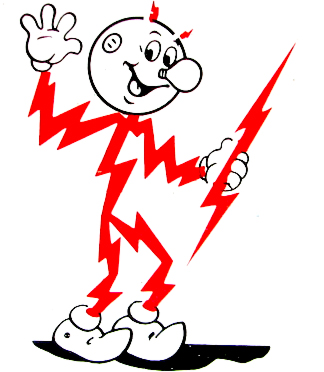 We have all looked at a lightbulb and noticed that it says, “100 Watts,” but what does that mean? We’ve also looked at our utility bill and seen that we’ve been charged for the amount of kilowatt-hours (kWh) we’ve used. But, again, what does this all mean? These terms are often used incorrectly and interchangeably, so we thought it was time for a clear explanation of what these units are and what they mean.
Let’s start with the basics. A watt (W) is a measure of POWER (or one joule per second). Power is the rate at which energy is used per unit time (an indicator of how fast an item uses energy). A kilowatt (kW) is, simply, one thousand watts, just as a megawatt (mW) is one million watts. When we’re talking about electricity, power is voltage times amperage or 1 watt = 1 volt x 1 ampere.
We have all looked at a lightbulb and noticed that it says, “100 Watts,” but what does that mean? We’ve also looked at our utility bill and seen that we’ve been charged for the amount of kilowatt-hours (kWh) we’ve used. But, again, what does this all mean? These terms are often used incorrectly and interchangeably, so we thought it was time for a clear explanation of what these units are and what they mean.
Let’s start with the basics. A watt (W) is a measure of POWER (or one joule per second). Power is the rate at which energy is used per unit time (an indicator of how fast an item uses energy). A kilowatt (kW) is, simply, one thousand watts, just as a megawatt (mW) is one million watts. When we’re talking about electricity, power is voltage times amperage or 1 watt = 1 volt x 1 ampere.
True, this may sound a bit like your high school physics class, but don’t panic. Read on and you’ll see it’s a simple concept to grasp…
One of the easiest ways to think about all of this is to think of electricity as water coming out of a hose. Voltage is the water pressure and the amperage is the flow. When there’s a kink in your garden hose, there’s a lot of pressure (voltage), but the water is not flowing anywhere (no amperage), which means there’s no power (i.e. a lot of volts x zero amps = zero watts).
Now let’s take this understanding and apply it to what happens when we un-kink the hose, and the water comes rushing out of it. The result is, a lot of volts x a lot of amps = huge POWER.
Okay, so you’ve got the concept POWER down, let’s go back to watts (W). A watt (W) is energy burned per second. A 100-watt light bulb eats up 100 joules of energy every second. Since “watts per hour” doesn’t make sense, because it’s already measuring “joules per second” and thinking of “joules per second per hour” is enough to make most people’s eyes glaze over, our utility companies use a watt-hour to charge us for the electricity we use. It’s a way of removing “per second” from watts.
Now let’s use one more analogy to wrap up this explanation - pretend you're running a marathon. Think of watts as the speed you’re running (i.e. the rate of energy used in that instant), and watt-hours as the total amount of energy you’ve used while running at a certain rate over an hour.
A kilowatt-hour (kWh) is the amount of energy equivalent to powering one kilowatt (kW) for one hour. A kilowatt hour (kWh) is a unit of ENERGY that is a much more convenient unit to use rather than the kilo-joule. It represents the power used by the appliance multiplied by the hours in use. In other words, when you leave a 100-watt lightbulb on for 10 hours you’ve used a kilowatt-hour (kWh) of energy and TEP will bill you accordingly.
So, as you can see, the kW and kWh are fundamentally different. Appliances show their power ratings (kW) on the nameplate to give you an idea of how much energy is used per second by the item. At TFS, we look at the amount of kWh on your utility bill to find out how much energy your home or business uses so that we can recommend the size solar PV system that would best suit your needs.
